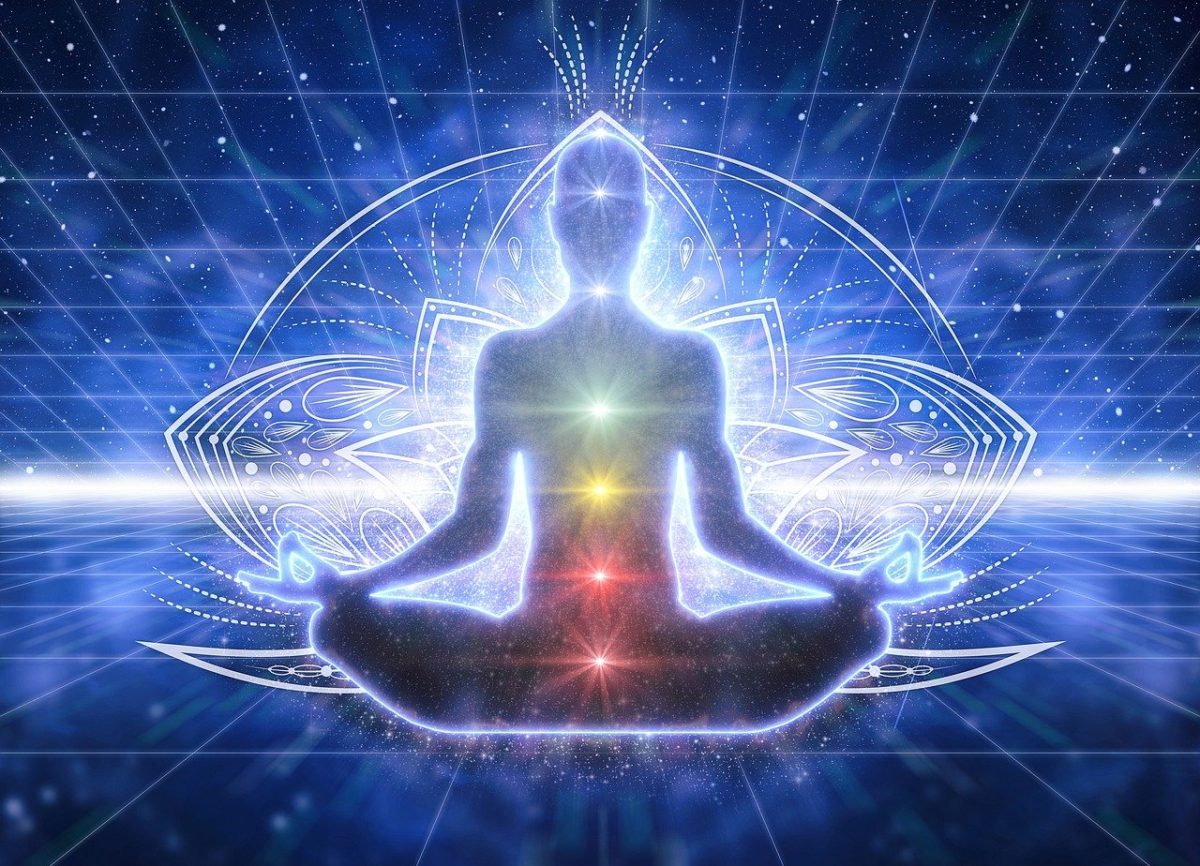Esoteric Meaning and Symbolism
Number ‘9’
Navratri means nine nights. The number 9 has great significance as it is considered a divine number as it is accurate, complete, magical and mystical. It represents the manifestation of infinite cosmos from null or void. Number 9 is an imperishable and indomitable number representing the Cosmic spirit.
The nine-day journey of the soul
This journey of the soul seems very systematically organised. The nine days can be divided into three periods of three days each. The first 1/3 days enables one to conquer the base tendencies by activating the Mooladhara (earth) and Swdishthana (water) energy discs. From a worldly or mythological point of view, these three days denote the worship of Goddess Kali or Durga. Worship of Durga symbolises the destruction of animalistic tendencies and invoke the divine power within us. Destroying evil tendencies help our mind to gain noble virtues. A human being gets weighed down by tamogun as it represents laziness, darkness, ignorance, and procrastination. Therefore, the first three days of Navratri get earmarked for the destruction of evil tendencies or vices like desire, anger, greed, attachments, ego, and jealousy.
The second 1/3 days represent the elimination of malefic aspects by activating the Manipura (fire) and Anahata (heart) energy discs. From the material point of view, these three days denote the worship of Goddess Lakshmi. As a consequence, our minds get purified and become eligible to acquire rue knowledge. Goddess Lakshmi is associated with wealth, and many take it for material wealth. In reality, her real form stands for spiritual values. Real wealth is the divine wealth for which purity of mind is essential.
The last of 1/3 days represent the cleansing of the Vishudha (throat) and Ajna (third eye/mind) energy discs marking the act of surrendering to the Cosmic Consciousness denoted by a resplendent pure white. Victory over mind becomes possible only through knowledge, the knowledge of self. Goddess Saraswati symbolises spiritual wisdom. The ultimate goal of all humans should be knowledge of the Supreme.
Significance of Dashera
The tenth day (Dashera) marks the awakening of Sahasrara (crown or the thousand-petalled) of consciousness’. Dashera represents the triumph of Ram over Ravana or, in short, the victory of good over evil or, righteousness over unrighteousness. The ten heads of Ravana represent knowledge of ten spiritual disciplines. The beheading all ten marks the destruction of the ten vices like kama (passion), krodh (anger), moh (craving), lobh (greed), mada (pride), matsarya (jealousy) and their derivatives. In a way, Navratri to Dashera marks the journey of the soul from the inert (tamasik) to active (rajasic) to illuminant (satvik) state. In this process, love replaces the ego.
Hidden Essence
Navratri can also represent the joyous celebration of the spirit or soul (the frenzied dancing during the nine nights) that marks the yearning of the individual soul for the Cosmic Soul/Super Soul. This is what the Upanishad hymn “Tat Tvam Asi” or Tatvamasi represents meaning “I am that” or “Thou Art That”, the highest state of cosmic bliss. As a journey of the soul, this also alludes to the Upanishadic hymn “Asato Maa Sad-Gamaya | Tamaso Maa Jyotir-Gamaya | Mrtyor-Maa Amrtam Gamaya |”. It means, (O Lord) Keep me not in (the Phenomenal World of) Unreality, but make me go towards the Reality (of Eternal Self), Keep me not in (the Ignorant State of) Darkness, but make me go towards the Light (of Spiritual Knowledge), Keep me not in (the World of) Mortality, but make me go towards the World of Immortality (of Self-Realisation).
End note
During Navratri, Goddess Durga stands invoked symbolically first to remove the impurities of the mind. Second, Goddess Lakshmi gets invoked symbolically to cultivate noble values and qualities. Finally, Goddess Sarawati gets invoked symbolically to gain the highest knowledge of self. The tenth day marks the symbolic celebration of Dashera to commemorate the victory of good over evil or virtue over vice.
Closely viewed, the Navratri festival symbolises the essence of Vedas, which beckons all to purify the mind by removing all negatives, cultivate positive values and gain spiritual knowledge and transcend limitations. It essentially is the victory of spirit over mind and perhaps, the ritualistic dance of joy of nine nights signifies the spiritual victory.





